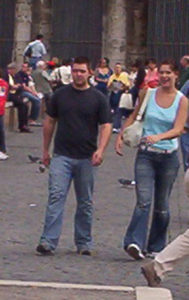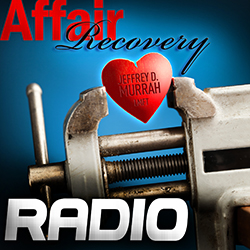As part of helping couples survive affairs, I keep up with what the trends are along with what other counselor types are doing. In watching what’s going on, I’ve learned new things, and at the same time am astounded as what some of the other people are doing and saying.
Take for example this statement from one of infidelity recovery specialists, “When someone tells you that your husband’s affair(s) is a form of abuse, I suggest you walk swiftly away and find someone who can teach you about unconditional love and how it can so beautifully transform people and relationships.”
Although I understand where he’s coming from, I also feel that you need some clear idea of what is meant by ‘abuse’.
In defining abuse, I’ll use the DSM-5, which is the guide for defining many disorders and issues. It includes the following as examples of abuse.
Berating or humiliating the victim, interrogating the victim, restricting the victim’s ability to come and go freely and obstructing the victims access to assistance. It also includes threatening with harm or sexual assault, including threatening people or things the victim cares about, limiting the victims access to economic resources, isolating the victim from family, friends or social support, stalking and making the victim think that they’re crazy.
The definition covers a wide variety of behaviors. Although I paraphrased some of it, the definition is from the DSM-5 and not from my own biases.
I agree with the author that not all affairs involve abuse. I also know that you have to be honest about calling things what they are. When you see abuse, it’s abuse. Calling it a ‘misunderstanding’ or ‘differences’ only waters down any discussion of abuse.
Perhaps it’s because the author doesn’t come from a counseling background that he downplays abuse as it relates to affairs. Unconditional love is important and abuse is not something that can be ignored.
Unconditional love and domestic abuse are toxic when combined in the wrong proportions. If your marriage contains abuse, it’s not a problem that goes away on its own.
The abuse needs attention and you need help. My video on “Overcoming Affair Trauma” helps with situations like that. If abuse was part of your relationship, I want you to order the video and start getting help in addressing this problem.
The affair and abuse can be overcome with effort and changes. It’s not impossible to overcome the abuse.
It’s not something that can be changed with a ‘positive mindset’ and the right kind of vibes. It’s going to take MORE than that. The principles in the video guide you in moving past it.
Keeping It Real,
Jeff

















2 Responses
Adultery is abuse. There is no other way to describe it. It destroys people. I have looked at different websites and there appears to be similarities across the board. The person committing the affairs tear the victim down to everyone to help justify their behaviors. While calling the victim crazy etc for questioning them. May not be physical, but it sure is mental!
David,
Thank you for sharing your thoughts. I share your view of adultery as abusive in most situations. It astounded me when I encountered the website by the infidelity recovery specialist that viewed it otherwise. That was one of the reasons I wanted to share that with readers.
He and his wife promote forgiveness, which is good, but when you dismiss or water down the abuse, the issues are never fully resolved or dealt with. In my mind sidestepping the abuse amounts to developing a ‘shared delusion’ surrounding the affair and its issues.
Best Regards,
Jeff